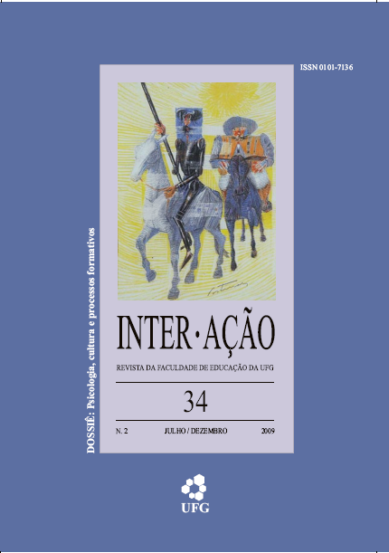FUNÇÃO MATERNA, EDUCAÇÃO E ATO EDUCATIVO
DOI :
https://doi.org/10.5216/ia.v34i2.8505Résumé
O presente texto tem como objetivo discutir como a função materna é condição para o surgimento de um sujeito psíquico instaurado no simbólico, considerando que, por tal função, é possível transformar um corpo biológico em humano, a partir das inscrições simbólicas dadas pelo Outro. Situamos a educação como resultado dessas inscrições simbólicas que possibilitam a transmissão de um sentimento de filiação, necessário ao advento do sujeito. Ao se considerar a função materna como fundante da educação, discutimos também como o ato educativo é por nós compreendido como estruturado justamente a partir das experiências primordiais, sem as quais nossa existência ficaria comprometida. Dessa forma, este texto pretende demonstrar como a educação é resultado da função materna e como o ato educativo é um derivado de tal função.Téléchargements
Téléchargements
Publié-e
Comment citer
Numéro
Rubrique
Licence
A Inter-Ação utiliza como base para transferência de direitos a licença Creative Commons Attribution 4.0 para periódicos de acesso aberto (Open Archives Iniciative - OAI). Por acesso aberto entende-se a disponibilização gratuita na Internet, para que os usuários possam ler, baixar, copiar, distribuir, imprimir, pesquisar ou referenciar o texto integral dos documentos, processá-los para indexação, utilizá-los como dados de entrada de programas para softwares, ou usá-los para qualquer outro propósito legal, sem barreira financeira, legal ou técnica.
Autores que publicam neste periódico concordam com os seguintes termos:
1) Autores mantém os direitos autorais e concedem à revista o direito de primeira publicação, com o trabalho simultaneamente licenciado sob a Licença Creative Commons Attribution que permite o compartilhamento do trabalho com reconhecimento da autoria e publicação inicial nesta revista.
2) Autores têm autorização para assumir contratos adicionais separadamente, para distribuição não-exclusiva da versão do trabalho publicada nesta revista (ex.: publicar em repositório institucional ou como capítulo de livro), com reconhecimento de autoria e publicação inicial nesta revista.
3) Autores têm permissão e são estimulados a publicar e distribuir seu trabalho online (ex.: em repositórios institucionais ou na sua página pessoal) a qualquer ponto antes ou durante o processo editorial, já que isso pode gerar alterações produtivas, bem como aumentar o impacto e a citação do trabalho publicado.















